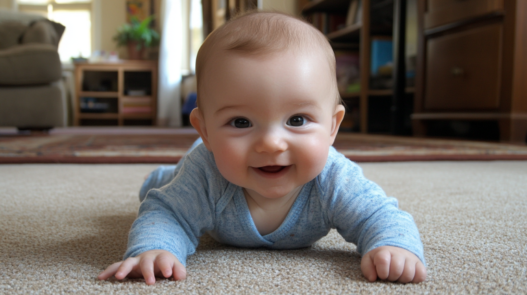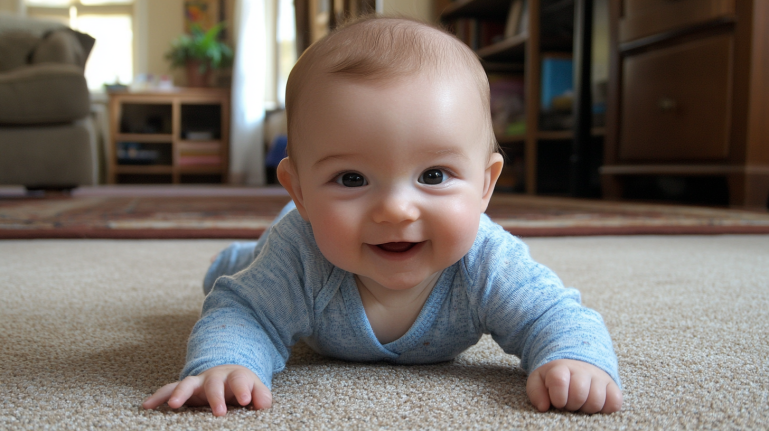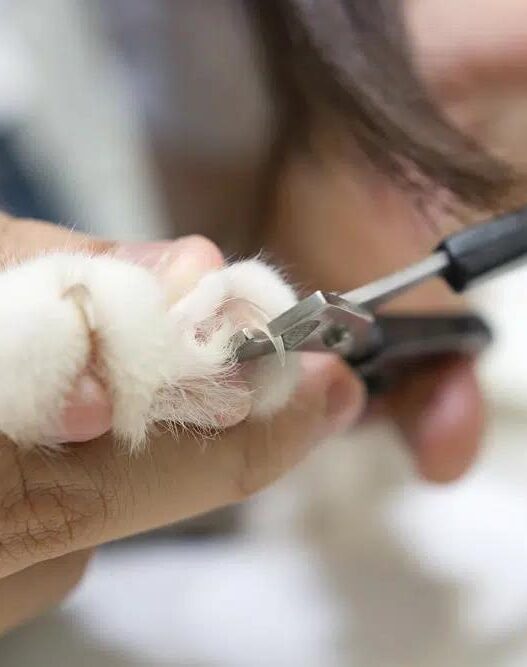“My baby turned over today! Does that mean their brain is developing well?”
“Why can the baby next door say ‘daddy’, but my child is still babbling?”
“How can I stimulate my baby’s brain development to make them smarter?”
The first year of a baby’s life is indeed a critical period for cognitive development. However, this doesn’t mean parents need to bombard their baby with educational flashcards or recite scriptures every day, treating them like they’re in a boot camp.
In the first year, a baby’s brain undergoes rapid development, but this process happens within certain “windows of opportunity.” If parents seize these key moments and provide the right stimulation, they can greatly enhance their child’s cognitive growth.
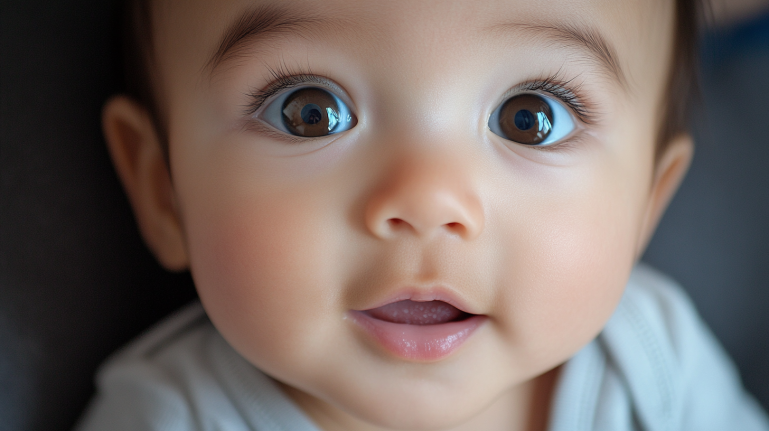
Why Is the First Year of Life the “Golden Period” for Cognitive Development?
When a baby is born, their brain is like a “super sponge,” absorbing all the information from their environment. Research shows that during the first year, a baby’s brain will grow by approximately 60%!
At this stage, babies aren’t just learning to recognize faces and objects—they’re also developing language, sensory, and cognitive skills.
Neurologists explain that a baby’s brain contains about 100 billion neurons (twice as many as an adult’s), and these neurons are connected by “synapses,” forming a vast neural network. In the first year, synaptic connections in a baby’s brain grow at an astonishing rate—about one million connections per second!

In other words, a baby’s brain is like a “high-speed train,” and parents must “get on board” to help nurture their baby’s cognitive development.
The Three Key Developmental Windows for Babies
During the first year, babies go through several important “development windows.” These are the optimal times for developing certain skills, and if missed, although progress can still be made, the outcomes may not be as effective.
0-3 Months: The “Exploration Phase” for Sensory Development
During this phase, babies are adjusting to the world, and their sensory systems are developing rapidly. They explore the world primarily through their senses—sight, hearing, and touch.
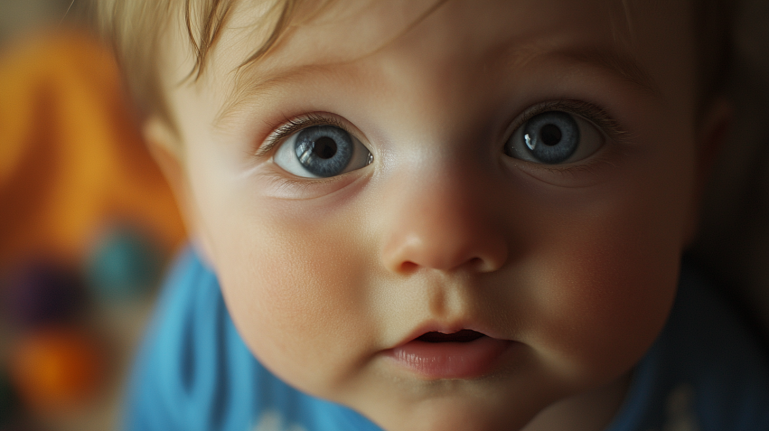
How can parents help?
Visual Stimulation: Babies are drawn to high-contrast patterns, such as black-and-white cards, simple geometric shapes, or even the faces of their parents (your face is your baby’s favorite “toy”).
Auditory Stimulation: Talk to your baby in an exaggerated tone to capture their attention. For example, “How are you so cute, little one?”
Tactile Stimulation: Hold your baby, gently stroke their head, back, or little hands. This not only provides comfort but also stimulates their nervous system.

4-6 Months: The “Practice Phase” for Hand-Eye Coordination
Between 4 to 6 months, babies become increasingly curious about the world. Their little hands start reaching for objects, and they can track moving items with their eyes. This is a key period for developing hand-eye coordination and fine motor skills.
How can parents help?
Grip Training: Provide baby-safe toys such as rattles or soft blocks, encouraging them to grasp and hold objects.
Tracking Exercises: Slowly move a toy or small ball in front of your baby’s eyes to help them practice tracking with their gaze.
Kick and Play: Hang toys above the crib so your baby can kick at them, helping to develop their leg strength and coordination.
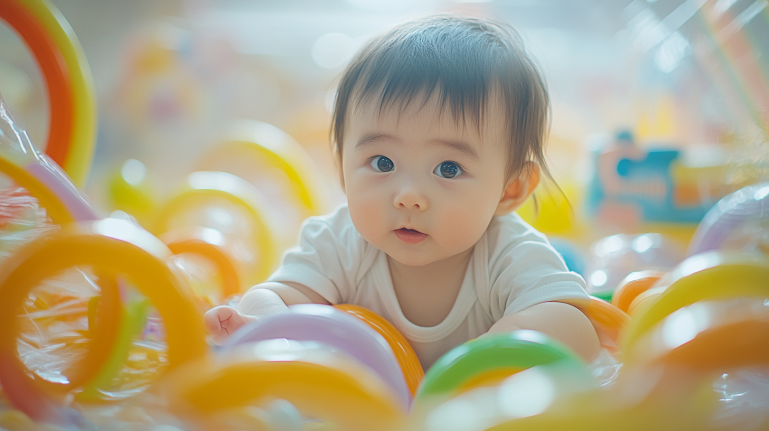
7-12 Months: The “Explosive Phase” for Language and Cognitive Development
After 7 months, babies experience rapid growth in both language and cognitive abilities. They start imitating adult sounds, and by the end of the year, many can understand simple commands like “clap hands” or “say goodbye.” They also begin to understand cause-and-effect relationships, such as “if I throw my toy, mommy will pick it up.”
How can parents help?
Talk to Your Baby: Engage in constant dialogue with your baby, even if it’s something as simple as, “We’re going to change your diaper now, isn’t that nice?”
Read Books: Choose colorful and simple picture books and read to your baby every day. This helps them develop language skills and increases their attention span.

Cause-and-Effect Games: Use toys that make sounds when buttons are pressed or play peek-a-boo games. These activities help your baby understand how their actions can lead to outcomes.
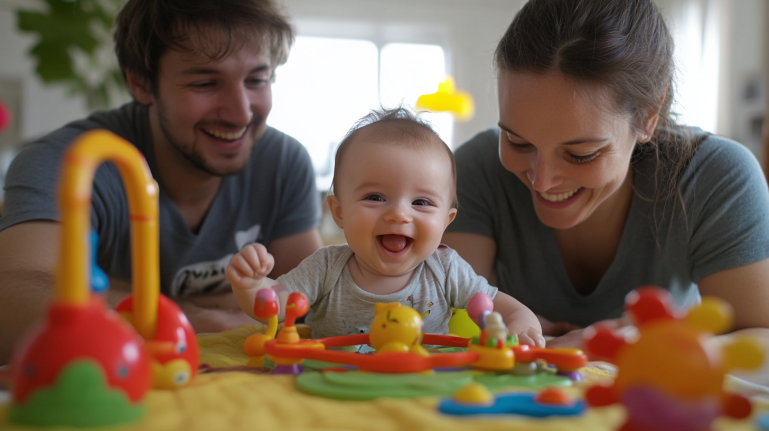
Jean Piaget’s theory of “sensorimotor stages” suggests that babies between 7 and 12 months are actively exploring the world through physical actions, and the establishment of cause-and-effect relationships is a key cognitive milestone.
Common Parenting Concerns and Solutions
1. “My baby is developing slowly—could there be an issue with their intelligence?”
It’s important to recognize that every baby develops at their own pace. Some may start crawling at 10 months, while others might start saying “mama” at 8 months. This is entirely normal. As long as your baby is in good health, with normal growth and development indicators, there’s no need to worry too much.

2. “Do I need to buy a lot of educational toys?”
The core of early childhood education is “interaction,” not “tools.” Babies’ favorite “toys” are actually their parents! Spending quality time with your baby—playing, talking, and bonding—is far more effective than buying a plethora of educational products.
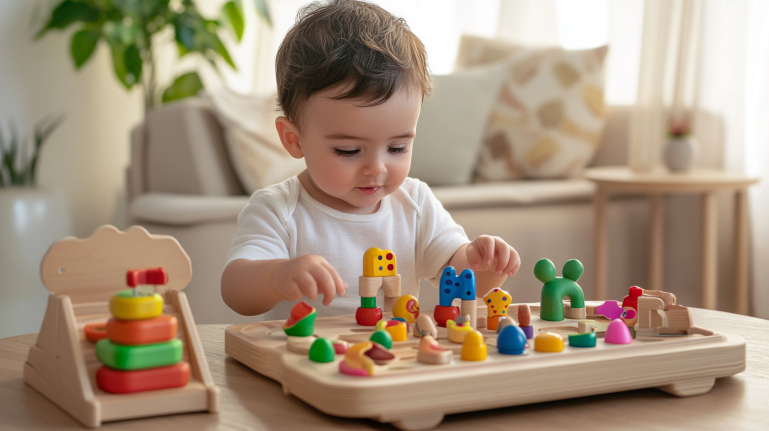
3. “I’m so busy with work; what should I do if I don’t have enough time to spend with my baby?”
Quality matters more than quantity. Even if you only have 10 minutes a day, as long as you are fully present and engaged—reading a book, talking, or playing—you can still make a significant impact on your baby’s cognitive development.
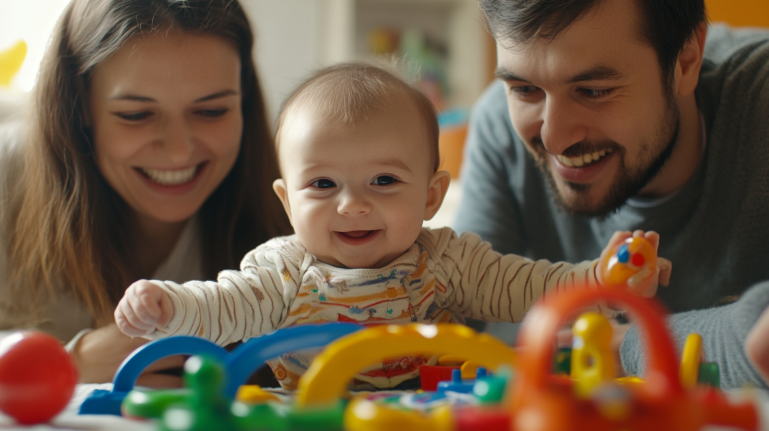
Practical Tips for Helping Your Baby’s Cognitive Development
Tummy Time: Make sure to give your baby plenty of tummy time every day. This not only strengthens their neck and upper body muscles but also enhances their spatial awareness.
Encourage Independent Exploration: Once your baby starts crawling or reaching for objects, give them a safe space to explore freely. This promotes problem-solving skills and curiosity.
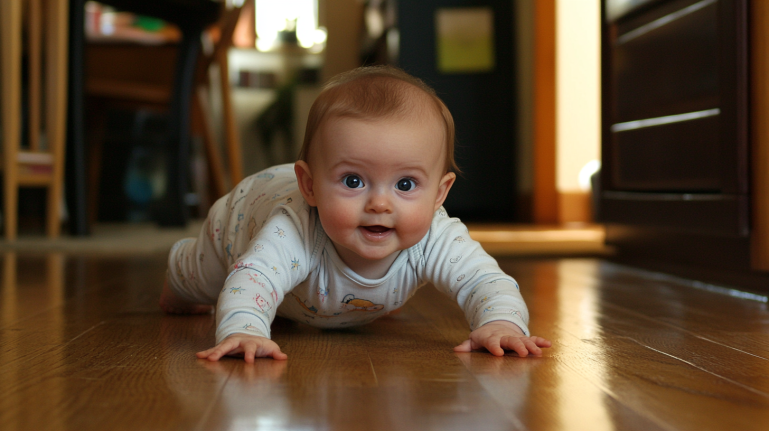
Expose Your Baby to Nature: Research shows that spending time in natural environments, with exposure to sunlight, trees, and birds, significantly boosts sensory development and attention span.
In Conclusion
Parenting is much like planting a tree. The first year is the time to “plant the seeds”—you may not see immediate results, but every loving interaction and moment of attention you give your baby lays a solid foundation for their brain development.
The key to scientifically-supported parenting is “moderate stimulation plus high-quality interaction.” You don’t need to follow a strict educational regimen for your baby. By simply seizing the developmental “window periods” and offering your baby love, patience, and the right stimulation, you’ll help their brain develop to its fullest potential.







